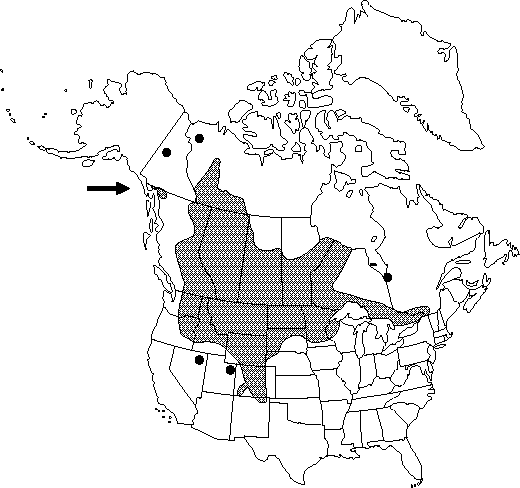Difference between revisions of "Thalictrum venulosum"
Proc. Boston Soc. Nat. Hist. 23: 302. 1886.
FNA>Volume Importer |
imported>Volume Importer |
||
| (One intermediate revision by the same user not shown) | |||
| Line 51: | Line 51: | ||
|publication year=1886 | |publication year=1886 | ||
|special status=Endemic | |special status=Endemic | ||
| − | |source xml=https:// | + | |source xml=https://bitbucket.org/aafc-mbb/fna-data-curation/src/2e0870ddd59836b60bcf96646a41e87ea5a5943a/coarse_grained_fna_xml/V3/V3_1164.xml |
|genus=Thalictrum | |genus=Thalictrum | ||
|section=Thalictrum sect. Heterogamia | |section=Thalictrum sect. Heterogamia | ||
Latest revision as of 21:46, 5 November 2020
Stems erect, 20-50 cm, glabrous, from rhizomes. Leaves basal and cauline; cauline 1-3, those proximal to inflorescence petiolate, those subtending panicle branches sessile. Leaf blade 3-4×-ternately compound; leaflets obovate to orbiculate, apically 3-5-lobed, 5-20 mm, lobe margins crenate, surfaces abaxially glabrous or glandular-puberulent. Inflorescences terminal, panicles, narrow and dense, many flowered. Flowers: sepals greenish white, lanceolate or broadly ovate to elliptic or obovate, 2-4 mm; filaments colored, not white, (1.8-)3-5.5 mm; anthers 2-3.5 mm, blunt to mucronate; stigma commonly yellowish. Achenes 5-17, erect to spreading, not reflexed, nearly sessile; stipe 0.1-0.3 mm; body often distinctly curved, elliptic-oblong, nearly terete to slightly flattened, adaxial surface 3-4(-6) mm, glabrous to glandular, veins distinct, not anastomosing-reticulate; beak 1.5-2.5(-3) mm.
Phenology: Flowering early summer-mid summer (Jun–Aug).
Habitat: Prairies, riparian woods, and coniferous, deciduous, and mixed forests
Elevation: 600-3700 m
Distribution

Alta., B.C., Man., N.W.T., Ont., Que., Sask., Yukon, Colo., Idaho, Minn., Mont., Nebr., Nev., N.Mex., N.Dak., Oreg., S.Dak., Utah, Wash., Wis., Wyo.
Discussion
Thalctrum venulosum is similar to T. confine and T. occidentale. Careful field studies are needed to clarify the relationships among these taxa.
Selected References
None.